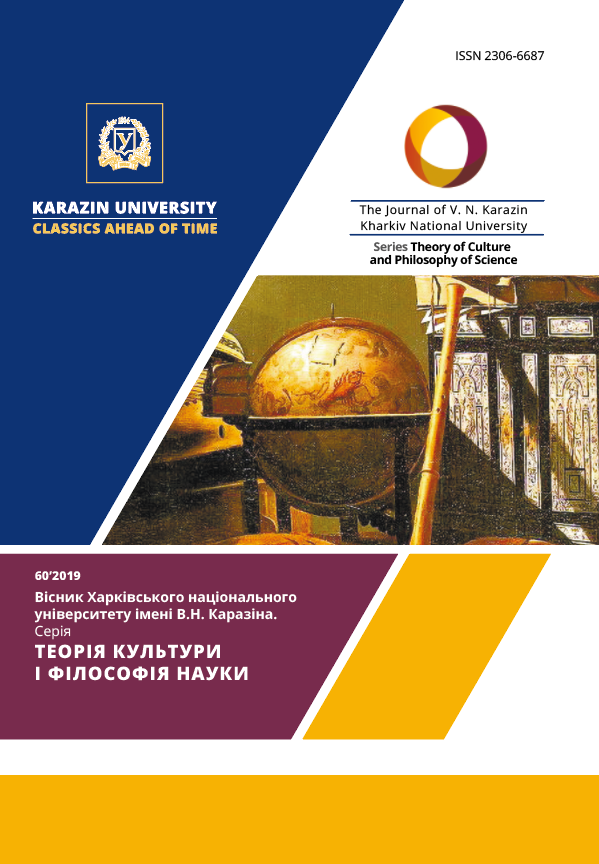Myth, language, identity of the arabs and south slavs
comparativistic analysis
Abstract
The main thesis of the paper consists in that nation is a myth of nation ormore presicely nation is a community united by common identity infoundation of which lies certain national myth. Myth is understood a discourse based on associations and affects, establishing initial coordinates of thinking. There exist two main models of understanding nations: the german (exceeding from the priority of language) and franco-british (exceeding from priority of the state). These models do not contradict each other and both may be reduced to our model exceeding from the priority of identit , as a matter of fact if there is a certain community united by common etnic identity, it aspires to get its own statehood and cultural language unification. In order to groung this thesis it is suggested to make a comparative analysis of the arabic peoples on the one hand and south slav nations on the other.
The chief norms of arabic language are given within the so-called classical arabic language of quran. The standard arabic is a kind of modernized version of the latter. It’s used in writing and official affairs as well as a means of inter-dialect communication. These languages are native nowhere but learnt in school. The dialects used in everyday communication can differ each other very much, untill the level of mutual incomprehension. Nevertheless the arabs go on to keep for common standard languge as language of official communication. The cause is common arabic identity that exists parallelly with local political, confessional or even ethnic identities. Thus, in the arabic world there exist parallel national identities: common arabic and local syrian, saudite, lebanese or egyptian. Namely the first leads to preservation of the common language, though it’s native to nobody.
In the balkans situation is evidently opposite. Beginning from the first half of the xix century we may say about existence of some common serbo-croatian language very close to colloquial dialects of the serbs, croats, boshniaks, montenegrians. This language was official in the first and second yugoslavia. Its colloquial dialects’ boundaries never coincided with the boundaries between ethnoses speaking them. If they were only dialects of the same language in yugoslavia, after disintegration of the latter they were declared official self-sufficient tongues in according states. The fist was croatia that had started elaboration of their separate language as early as the time of yugoslavia, then after the collapse of yugoslavia the boshniaks and later the montenegrians declared their separate languages. Dialectical peculiarities became norms.
Thus, the key moment is identity and myth it’s based on. Myths and identities may be national, political, religious, confessional. In the case of the south slavs namely the national myths won that led to disintegration of the common state and further cultural and linguistic differentiation. In the case of the arabs the common national religious myth preserves its power till now and makes the arabs to keep to the according common language different from colloquial dialects.
Downloads
References
Білецький І.П. Феномен науки в контексті парадигм філософування/ Білецький І.П. //Вісник Харківського національного університету імені В.Н. Каразіна, серія «Теорія культури і філософія науки», випуск № 56, 2017. – 100 с.
Сегаль В.С. Начальный курс арабского языка / Сегаль В.С. – Киев: Чумацкий шлях, 2006. – 184 с.
Сміт Ентоні. Нації та націоналізм у глобальну епоху / Сміт Ентоні; пер. з англ. – Київ: Ніка-Центр, 2009. – 320 с.
Сотировић Владислав Б. Социолингвистички аспект распада Југославије/ Сотировић Владислав Б. - Вилњус, Литванија: Штампарија Универзитета у Вилњусу, 2006. - 196 с.
Халидов А.Б. Арабский язык / Халидов А.Б. // Очерки арабской культуры под ред. Большакова О.Г. - Москва: «Наука», 1982. - 440 с.
Хюбнер Курт. Истина мифа /Хюбнер Курт; перевод с немецкого И. Касавина - Москва: «Республика», 1996. – 448 с.
Čomski Noam JUGOSLAVIJA Mir, rat i raspad / Čomski Noam; S engleskog prevela Tanja Milosavljević - Beograd: „Samizdat B92", 2018. – 238 c.
Hourani Albert. A History of the Arab Peoples/ Hourani Albert - Cambridge, Massachusetts: The Belknap Press of Harvard University Press, 2010. – 566 p.
Plokhy Serhii. Lost Kingdom / Plokhy Serhii. - Great Britain: Published in Penguin Books, ClaysLtd, Elcograf S.p.A., 2018. – 398 p.
Yassin-Kassab Robin, Al-Shami Leila. Burning Country. Syrians in Revolution and War/ Yassin-Kassab Robin, Al-Shami Leila. – London: Pluto Press 345 Archway Road, 2016. – 302 p.




